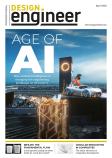The World Business Council for Sustainable Development (WBCSD) and One Planet Network (hosted by UNEP) have launched the Global Circularity Protocol for business (GCP) at COP30
Created in partnership with over 150 experts from 80 organisations, the GCP is a voluntary, science-based, globally harmonised framework for helping companies of all sizes measure, manage, and communicate their circular performance and impacts across value chains.
The GCP enables businesses to move beyond linear models by providing practical steps and metrics to reduce waste and emissions. The Protocol allows credible, comparable reporting and offers support for companies meeting rising regulatory and stakeholder expectations.
Peter Bakker, President and CEO, WBCSD, said, "The GCP provides companies with standardised, science-based metrics and a clear roadmap for measurable action, enabling leaders to drive tangible progress, build resilience, and deliver long-term value to both business and planet. The scale of the opportunity is significant. Our analysis has revealed that by 2050, widespread adoption of the GCP could save up to 120 billion tonnes of materials, equivalent to one year's current global consumption, and avoid up to 76 gigatons of CO₂ emissions – equivalent to one and a half times current global annual emissions."
The GCP can help companies identify circularity hotspots and opportunities to advance innovation and develop future-fit value chains. The Protocol's collaborative development process ensures it is practical and adaptable for diverse sectors and geographies.
Commenting, Diane Crowe, group sustainability director at Reconomy, the international circular economy specialist, said, “While this year’s COP ended in contention with non-binding agreements exposing divisions over how to tackle climate change, the launch of the world’s first voluntary, science-based and globally harmonised framework for measuring circular performance is a genuinely positive step. This framework will give businesses a clear and credible way to measure their progress on their journeys to becoming more circular, which remains both an economic and environmental imperative.
Crowe added, "With just 6.9% of resources making their way back into use, the global economy's overharmonised virgin materials to sustain growth creates an unsustainable circularity gap marked by lost economic potential from materials being discarded rather than reused or recycled and by the significant greenhouse gas emissions generated and the impact on nature from resource extraction. By accelerating the transition to the circular economy, businesses can strengthen economic resilience and lower costs, while reducing impacts on the natural world, protecting biodiversity and supporting long-term sustainability."
Reconomy has made significant strides in reducing emissions and waste worldwide. Following the failure to reach an agreement in finalising a treaty to end plastic pollution in August 2025, the company collaborated with VWS Software Solutions, creators of the PurGo waste management enterprise resource planning platform (ERP), to enhance the waste and resource sector by integrating PurGo's ERP capabilities with Reconomy's service architecture, digitalXchange, to provide greater data accuracy, streamlined service execution, detailed performance analytics and real-time insights for UK customers


















